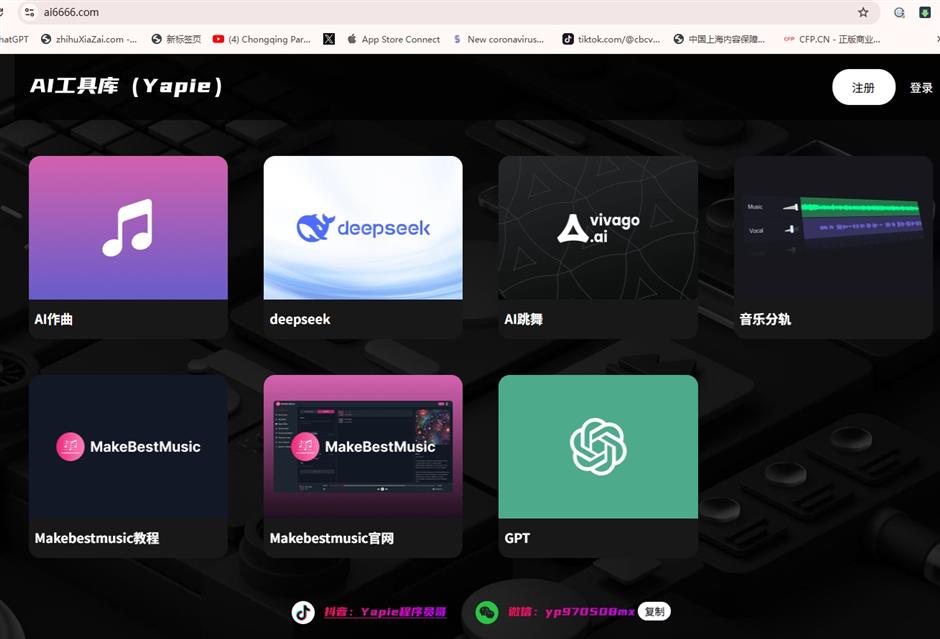The programmer who topped the pop charts with AI
In a first for the Chinese music industry, a programmer – not a singer, band, or composer – shot up the charts with an AI-generated love song. Yang Ping, known online as Yapie程序员哥, created Seven-Day Lover, a Jay Chou-style Mandarin pop track, using generative tools such as DeepSeek and MakeBestMusic.

Programmer Yang Ping's Xiaohongshu page where he branded himself as the writer of "Seven-day Lover."
The song exploded on NetEase Cloud, racking up over 2 million plays and 4,000 comments within four days of its February release – placing Yang alongside pop stars like Jackson Wang and Gloria Tang.

On Netease Music, the AI-generated song "Seven-Day Lover" has received 10,000 likes and more than 999 comments so far.
Yang sold the track's copyright for 50,000 yuan (US$6,955), received inquiries from talent shows and TV producers, and rebranded his social presence entirely: from finance vlogger to full-time AI music creator.
Yang has no formal music training. What he does have is a knack for turning curiosity into content. He now offers tutorials breaking down how to generate lyrics, melodies, and beats using AI models, tools, and prompt engineering. His videos have had over 50 million views.
He has also launched a website – ai6666.com – bundling services for writing lyrics, generating beats, and uploading finished tracks to Chinese streaming platforms.

Yang bundled many AI tools for creating music on his website.
Yang is confident he owns the full rights to "Seven-Day Lover." Under DeepSeek's terms, users retain copyright as long as they provide the creative prompts. MakeBestMusic grants full commercial rights to subscribers.
But not everyone agrees. Legal experts in China are still debating the status of AI-generated works. According to lawyer Ouyang Wenqian, if the human user provides emotionally meaningful and detailed instructions – such as themes, arcs, or stylistic cues – they could be seen as co-creators under copyright law.
The debate is heating up as similar songs flood the market. Spin-offs like "Eight-Day Lover" and "Ninety-Nine-Day Lover" have emerged, but none have matched Yang's original in reach or cultural resonance.
"Honestly, it's not that the song was that good," Yang told South Reviews. "People were curious about the process, not just the result."
Streaming platforms are adjusting quickly. Tencent Music now lets users upload AI-generated songs via a dedicated channel.
NetEase Cloud and Douyin's Qishui Music offer monetization, but require tracks to pass rigorous originality checks.
Yang sees AI not as a threat, but a collaborator. "AI won't replace humans," he told Haibao News. "It'll work with us to create something better."

Chinese tech giant Tencent's QQ Music allows users to upload AI-generated music with their integrated AI tools.

CISAC estimates that AI-generated music could cause global income losses of nearly 10 billion euro by 2028.
Outside China, the mood is more tense.
The International Confederation of Societies of Authors and Composers (CISAC) estimates AI-generated music could cause global income losses of nearly 10 billion euro (US$11.4 billion) by 2028.
According to an article in The Wall Street Journal in February, music giants Warner, Sony, and Universal are in talks with AI startups such as Suno and Udio to secure licensing agreements. Their goal: to make sure artists are paid when their work is used to train or inspire AI compositions.
Musicians are pushing back in creative ways. As reported by The Australian in April last year, Nick Cave called AI lyrics "a grotesque mockery," while Hans Zimmer warned of losing music's soul. In the UK, artists including Kate Bush and Damon Albarn released a silent protest album –"Is This What We Want?"– to highlight the existential threat AI poses to their craft and livelihood, according to a May 2024 piece in People Magazine.

The cover of the silent album "Is This What We Want?" It consists of silence recorded in recording studios, protesting the use of unlicensed copyrighted work to train AI.
From China to the UK, the music industry stands at a crossroads. Will AI democratize music, creating more opportunity for creators like Yang Ping? Or will it bury human artistry under a flood of instant, soulless content?
The beat goes on – but who's writing it now?











